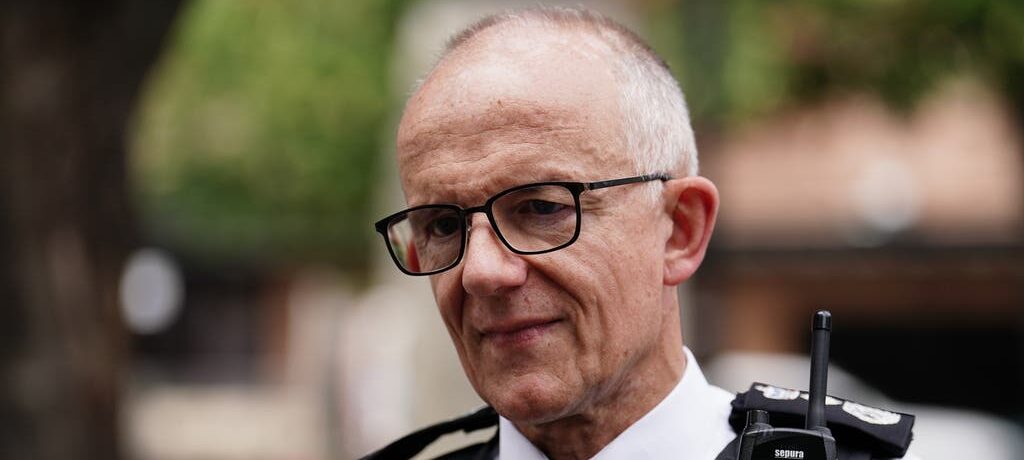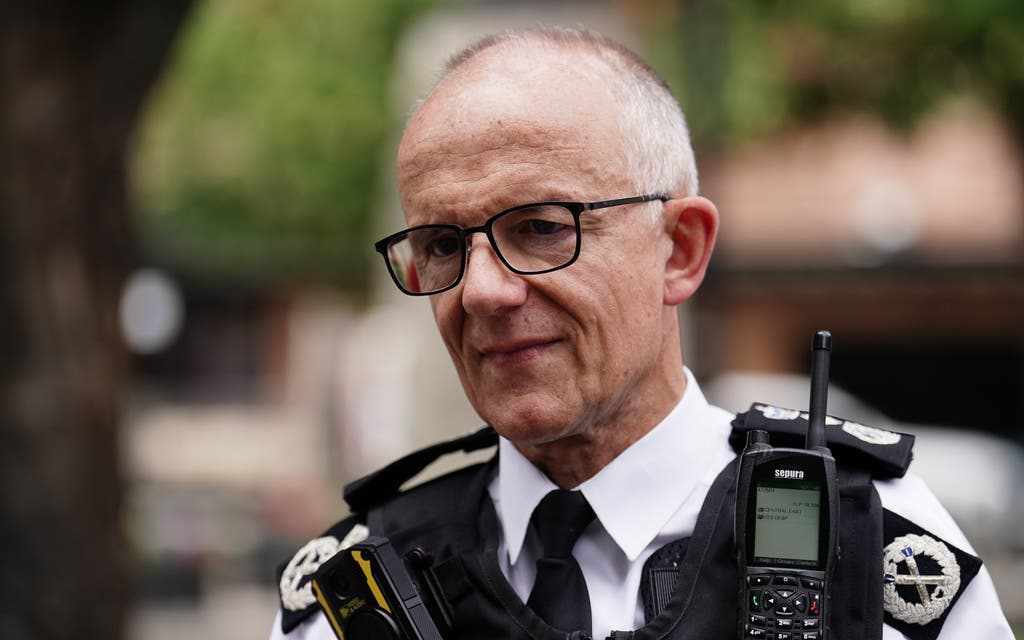What country has more insane speech laws that the UK?
I think they’re number one, by a pretty wide margin. Australia might be worse.
In some ways, the US is worse, even though they don’t technically have laws, because the social media companies are so strict and companies are allowed to fire you for your political views. Americans probably don’t know that most countries have laws preventing people from being fired over politics.
The country’s most senior police officer has called for “outrageous” gaps in hate crime law, which he said allows people to lawfully stir up racial and religious hatred, to be closed.
Sir Mark Rowley, who leads the Metropolitan Police, said it was “outrageous” that people could stir hatred if they “avoid being threatening or abusive”.
The Met has faced controversy over its policing of hate crimes and protests in London surrounding the Israel-Hamas conflict, with Sir Mark facing calls to resign.
The force has come under pressure from senior Conservatives, including former home secretary Suella Braverman, and campaign groups to ban large pro-Palestinian demonstrations – something the police chief said was not possible as the legal threshold for a ban had not been met.
Sir Mark, who was discussing the challenges of policing the protests on the latest episode of the A Muslim and a Jew Go There podcast, was asked by co-host Baroness Sayeeda Warsi how police would respond if “a Jewish person used the Y-word, or if I use the P-word, or a black person used the N-word, or if an Asian person used the C-word, coconut”.
The police chief said that he was “quite struck with some of the sort of gaps in hate crime laws” when he worked on an extremism report before rejoining the Met as Commissioner.
He said: “There are some things that are quite startling.
“It is perfectly lawful at the moment to intentionally stir up racial and religious hatred as long as you avoid being threatening or abusive.”
Who were these dolls threatening, Mark?
Co-host, comedian and screenwriter David Baddiel said: “But that seems impossible?”
To which Sir Mark responded: “It’s outrageous isn’t it.”
When asked for an example, he said: “Some of the sort of faux-intellectual arguments that go to global Jewish conspiracies, grand (great) replacement theory, if you look at someone who’s churning that stuff out – it’s hard to come to any conclusion other than their intent but actually because it’s not done in a threatening or abusive context they sort of somehow side-step it.”
The great replacement theory is an antisemitic conspiracy theory that alleges Jews are leading efforts to replace white people in majority white countries with people of other ethnicities.
He added: “I think there are, like I said, some gaps in extremism, in hate crime legislation, in terrorism legislation that create some cracks for this behaviour to exist when it ought to be illegal.
“If you are setting out with an intent to stir up racial and religious hatred full stop, if we can prove the intent, that ought to be illegal.
“It’s not, unless you can prove some other things, at the moment.”
At this point, governments should just release list of things you’re allowed to say, rather than lists of things you’re not allowed to say.
Most things that most people want to say about politics they can’t say in any white country. (Ironically, even with the war, Russia is probably at the top of the freedom of speech list, especially if you go by “things people want to say.” Most people don’t want to speak out against the war or attack Putin, so it’s a bit different to ban that speech. You can insult gays or black people or immigrants or whatever.)
I guess in some ways, governments do put out a list: you’re allowed to say whatever people are saying on TV. Pretty much, doing anything other than repeating talking points you’ve seen on TV will get you arrested in most white countries, or banned from everything, financially destroyed, and quite possibly sued, in the United States.

